Table of Content
1. Introduction
2. Psychological Factors
3. Social Factors
4. Economic Factors
5. Personal and Lifestyle Factors
6. Marketing and External Influences
7. Emotional Factors
8. Cognitive Factors
9. Environmental Factors
10. Conclusion
1. Introduction
Understanding factors influencing consumer decisions has emerged as a critical factor of success in modern businesses’ fast-paced and ever-changing face. The way customers make decisions, which are impacted by various circumstances, has a significant impact on the marketing and sales strategies of organizations worldwide.
Understanding the complexities of consumer behavior as a business owner or marketer can be the key to unlocking new opportunities, building enduring connections with clients, and eventually driving your enterprise to greater heights.
In this blog, we will begin on an illuminating trip to investigate the critical importance of understanding customer decision-making for businesses. We will provide you with essential insights to make informed and productive business decisions by thoroughly assessing the elements influencing customer choices and their far-reaching effects on marketing and sales strategies.
Keep reading as we delve into the depths of the consumer mind, finding the hidden motivations that impact their actions and preferences, whether you are a seasoned entrepreneur looking to boost your brand's positioning or a new marketer wanting to grasp the essence of consumer behavior. Let's uncover the secrets enabling your company to succeed in today's competitive industry.
2. Psychological Factors
- Perception
Consumer perception is a major aspect that drives consumer behavior. Customer perception is the process through which a customer gathers information about a product and interprets that information to construct a meaningful image of that product.
When customers see commercials, promotions, customer reviews, social media feedback, and so on connected to a product, they form an opinion about it. As a result, customer perception significantly influences consumer purchasing decisions.
- Motivation
Motivation serves as a significant determinant that influences an individual's purchasing behavior. One widely recognized theory in this realm is Maslow's hierarchy of needs, which presents a model comprising five distinct levels of human needs.
This theory begins with the foundation of psychological needs, progressing towards safety needs, social needs, esteem needs, and culminating in self-actualization needs. Among these requirements, our fundamental needs and the need for security typically take precedence over others.
- Learning and Memory
Every purchase enhances our comprehension of the product due to the experience obtained. Our own experiences, knowledge, and talents have a significant impact on this learning process.
There are two types of knowledge acquisition: cognitive learning and conditional learning. We use our current knowledge in cognitive learning to achieve fulfillment and meet our requirements with the purchased object. Conversely, conditional learning occurs when we are repeatedly exposed to a specific circumstance, allowing us to adapt and respond appropriately.
Non-experiential learning, for example, comes into play when we seek resources outside of our personal experience. This could include reading book and product reviews on platforms like Amazon and depending on cinema ratings from sites like Rotten Tomatoes.
- Attitudes and Beliefs
We have particular attitudes or ideas that influence our purchasing decisions, consciously or unconsciously. Consider your friend who believes that caffeine is bad for your health and prefers tea, whereas you believe caffeine provides energy and thus prefers coffee.
These attitudes and beliefs substantially impact our product-related behavior and play an important part in defining the brand image of a product. As a result, understanding a consumer's attitude and beliefs is crucial for marketers as they create marketing strategies.
3. Social Factors
- Culture
Cultural influences subtly influence a consumer's purchase decisions because their social and cultural milieu influences them. The items or services they choose to use are influenced directly or indirectly by the existing cultural background, including race, religion, tradition, caste, and moral ideals.
- Social Class
One's social status has a huge impact on their shopping decisions. Individuals in higher positions are frequently affected largely by their social status in their purchasing behavior.
For example, a company's Chief Executive Officer (CEO) may purchase based on their heightened status. In contrast, a staff member or employee within the same organization may demonstrate different purchasing habits. As a result, an individual's social position and professional job might significantly impact their buying behavior.
- Reference Groups
Reference groups are people or organizations that we are affiliated with. These groups include clubs, schools, professional or recreational organizations, churches, acquaintances, and circles of friends. Members of these reference groups typically have similar purchasing patterns, and an important opinion leader frequently shapes their purchasing behavior.
- Family and Household
Our families do have a significant influence on our shopping behavior. We develop an inclination or aversion to specific things as children by watching our families use them, and we continue to use those products as we grow older.
For example, if our family members like Burger King, we will unconsciously choose Burger King over, say, Mcdonald's or KFC.
4. Economic Factors
- Income
When an individual's disposable income rises, their purchasing power correspondingly increases. Disposable income refers to the money left after covering essential needs. With a higher disposable income, people tend to spend more on various items. Conversely, reducing disposable income leads to decreased spending on multiple items.
- Price Sensitivity
Price significantly influences consumer decisions, affecting perceptions of value and affordability. Consumers weigh price against benefits to determine whether a product/service aligns with their needs and budget.
- Economic Conditions
During economic changes, consumer behavior undergoes significant shifts. Consumers may become more cautious, seek value for money, alter spending habits, and prioritize essential items, impacting businesses and industries.
- Financial Situation
Financial constraints may lead to budget-conscious decisions, prioritizing necessities over luxuries, seeking discounts, and opting for affordable alternatives, while ample disposable income can encourage indulgence and premium choices and you can gain insights into personal finance course that creates an awareness about budgeting, retirement planning, savings and much more.
5. Personal and Lifestyle Factors
- Personality Traits
Personality traits significantly influence consumer choices, as different personalities are drawn to distinct products and brands based on preferences and needs.
- Lifestyle
Our way of life is one of the most powerful influences on our decisions. Our manner of life has a strong influence on our shopping patterns. If we are on a diet, the products we buy, from food to weighing scales to protein, will help us keep to it.
- Values and Beliefs
Consumers gravitate toward products that resonate with their ethical, moral, and ideological principles. Thus values and beliefs of a brand impact its consumer profile.
- Self-Image
Self-perception is crucial in consumer behavior, driving individuals to make purchases that reinforce or enhance their self-image, identity, and social standing.
6. Marketing and External Influences
- Advertising and Promotion
Through persuasive messaging, engaging visuals, and strategic targeting, campaigns create awareness, evoke emotions, and communicate value propositions, motivating consumers to consider, prefer, and ultimately purchase the promoted products or services.
- Branding
A positive reputation based on trust, quality, and great experiences promotes brand loyalty, enticing customers and establishing faith in their purchasing decisions. A negative reputation, on the other hand, can drive customers away, causing them to pick alternatives with more favorable opinions.
A strong brand reputation influences not just initial purchases but also repeat business and advocacy, making it an important factor in determining consumer choices and generating corporate success.
- Product Packaging
Packaging is pivotal in captivating consumers' attention; we all know about first impressions, right? Eye-catching designs, informative labels, and creative presentations create a lasting impression, enhancing product appeal, perceived value, and the overall consumer experience.
- Online Reviews and Testimonials
Customer feedback is a potent influencer of decisions. Businesses gather insights from feedback to improve products, services, and customer experiences. Positive feedback boosts brand trust while addressing concerns, fosters loyalty, and drives continuous improvement.
7. Emotional Factors
Businesses can effectively connect with their target audience and inspire favorable choices by employing emotional appeal, building emotional branding, addressing FOMO, and tapping into nostalgia.
- Emotional Appeal
Emotions have a profound impact on marketing and advertising. Brands leverage emotional triggers like joy, excitement, or empathy to connect with consumers deeper, influencing their decision-making process.
- Emotional Branding
Building emotional connections with consumers strengthens brand loyalty. Brands that tap into consumers' emotions and values foster lasting relationships, making customers more likely to repeatedly choose their products or services.
- Fear of Missing Out (FOMO)
FOMO affects consumer behavior, prompting individuals to make impulsive purchases due to the fear of missing out on limited-time offers, exclusive products, or unique experiences.
- Nostalgia
Nostalgia influences purchasing decisions by evoking positive memories and emotions from the past. Brands often leverage nostalgic elements in products, packaging, or marketing campaigns to resonate with consumers' sentimental preferences.
8. Cognitive Factors
- Decision-making Heuristics
Cognitive biases are mental patterns or shortcuts that influence decision-making. The scarcity effect, for example, causes consumers to perceive limited offers as more valuable, resulting in higher demand.
Another bias is the anchoring effect, which occurs when people make decisions based on the first piece of information they receive. Marketers can construct their goods to resonate with consumers' cognitive habits by knowing these biases.
- Cognitive Dissonance
Consumers experience cognitive dissonance when faced with conflicting thoughts or feelings after a purchase. They seek to resolve this discomfort by justifying their choice or seeking reassurance about their decision.
- Information Overload
Information overload, in which customers are presented with an excessive amount of data or options, can have an impact on the decision-making process. This can result in confusion, delayed judgments, or reliance on reliable sources.
- Decision-Making Styles
Consumers adopt decision-making styles, such as rational, intuitive, or impulsive approaches. Individual preferences, past experiences, and the level of involvement in the decision-making process shape these styles.
9. Environmental Factors
- Sustainability and Ethical Considerations
Many individuals are concerned about climate change. Consumers want to do their part to help the environment. They are demanding more environmentally friendly businesses and will increase that demand in the future. Companies that sell sustainable items frequently influence consumers interested in clean and green practices.
In recent years, there has been an increase in customer desire for transparency in the firms they support. Consumers now boycott and quickly abandon companies that engage in questionable practices or are led by CEOs with whom they disagree. Customers are more likely to support companies that share their personal beliefs and values. Businesses must be upfront about their history and practices to gain the trust of their customers.
- Legal and Regulatory Influences
Laws and regulations can significantly affect consumer behavior. Compliance requirements, product labeling, and safety standards influence purchasing choices and shape consumers' trust in brands.
- Technological Advancements
Technology plays a pivotal role in consumer decisions. The ease of online shopping, product reviews, and social media influence shape consumer preferences and provide valuable insights into products and services.
10. Conclusion
We make purchasing decisions almost every day, big or small. We consider meeting a need while making a purchasing decision. Various elements, which we covered exhaustively here, can guide this desire.
Firstly, understanding potential factors that are profound in making consumer choices includes psychological factors and what motivates your consumer to buy. These factors guide how most consumers decide when and what to buy, making it simpler for businesses to tailor their products better.
Further on, it is impossible to consider other factors, such as lifestyle and emotional factors. Some of these factors are overlooked often, but understanding them will give you an edge over your competitors.
I highly recommend going through each factor seriously, as even the tiniest detail can change your business substantially. Embrace a personalized guide to understand your consumers’ decision-making and hone your products to suit them better.
Remember understanding your consumer gives you a door to your customer’s mind.
Businesses can use each of these characteristics as a weapon to improve their sales prospects. We hope our article has given you a clear picture of these elements.
Join the Conversation:
We value your experiences and insights! Share your tips and success stories on understanding your consumer decisions better to build your business in the comments below. Let's learn and grow together as a community of customer-centric leaders!
Contact Us Today:
Take the first step towards understanding consumers better. Contact our experts to explore how consumers behave to revolutionize your business and make it big. Don't wait! Connect with us and seize the opportunity, and experience the extraordinary impact on understanding customers better. Together, let's create a customer-centric future that sets your business apart!












